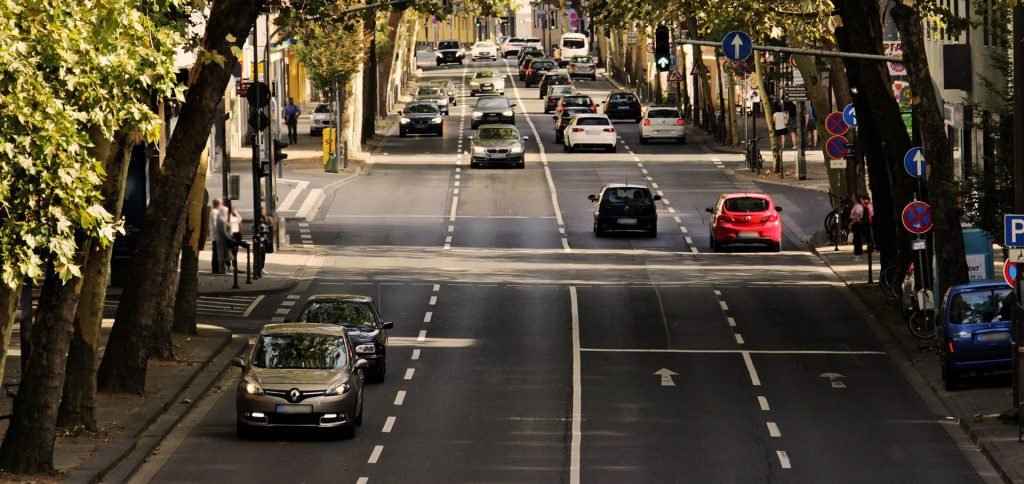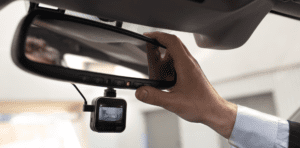Compare cheap car insurance
✔ Compare cheap car insurance quotes
✔ Over 110 insurance providers
✔ Get a quote in minutes
✔ Save up to £504*


- How can I tax my car?
- Can I pay my car tax at my Post Office?
- Can I pay my car tax by phone?
- How much is my car tax?
- When is my car tax due?
- Which cars are exempt from paying road tax?
- Why are electric cars exempt from road tax?
- Vehicles with a list price of more than £40,000
- How do I cancel my car tax for a refund?
- What happens if I drive without tax?
- Compare car insurance
The ultimate guide to taxing your car
Everything you need to know about taxing and MOT your car including how much it will cost.
The cost of Vehicle Excise Duty (VED), also known as car tax or road tax.
To legally drive your car on the road, it must be taxed under the name of Vehicle Excise Duty (VED), also referred to as car tax or road tax. Additionally, your car must have a valid MOT and insurance.
How can I tax my car?
Taxing Your Car: A Step-by-Step Guide
When your car tax is up for renewal, you will receive a V11 reminder letter from the DVSA letting you know how much your car tax will be for the year. You can either pay monthly by direct debit, for 6 months or for 12 months in full. You can also use the reference number in your V5C log book if you haven’t received this or have lost it. If have a new car, you will have been given a V5C/2 supplement with a reference number from the past owner that you can use if you don’t have the logbook.
You can pay your tax online on the government website and fill in the reference number. From this, you can view the tax status of your car, and you can choose how you wish to pay.
Step 1: Check if your car needs to be taxed
Before you start the process of taxing your car, it’s important to determine if it’s actually required. Generally speaking, if your car is kept on a public road and is used, it needs to be taxed. However, there are some exceptions to this rule. For example, if your car is kept off the road, has a valid Statutory Off-Road Notification (SORN), and is not driven, it does not need to be taxed.
Step 2: Gather the necessary information
To tax your car, you’ll need to have the following information handy:
- Your car’s registration number
- Your car’s make and model
- Your car’s engine size
- Your car’s fuel type
- Your driving licence number (if you are the registered keeper)
Step 3: Choose the type of tax you want to pay
There are two options for taxing your car:
- A 12-month tax (valid for one year)
- A 6-month tax (valid for six months)
Step 4: Pay the tax
You can pay your car tax in a number of ways, including:
- Online through the Government’s official website
- By phone using the automated system (0300 123 4321)
- By post using a VED1 form
- In person at a Post Office
Step 5: Update your vehicle’s documentation
Once you’ve paid your car tax, it’s important to ensure that your vehicle’s documentation is up to date. You should receive a new tax disc in the post, which you should display on your car’s windscreen. If you don’t receive a tax disc, it’s a good idea to check the status of your payment online.
In conclusion, taxing your car is a straightforward process that can be completed in a matter of minutes. By following these five steps, you can ensure that your vehicle is legally roadworthy and that you are contributing to the upkeep of the UK’s transportation infrastructure.
Can I pay my car tax at my Post Office?
Yes, you have the option of paying your car tax at selected main Post Offices. To do so, you will need to bring either the DVLA reminder form (V11) or your vehicle’s logbook. It is important to note that in order to tax your car, you must have a valid MOT certificate that covers the start date of your tax. Additionally, if you reside in Northern Ireland, you will need to present an insurance certificate or cover note.
If you are unsure whether your local Post Office is equipped to process car tax payments, you can easily verify this by searching for your local PO online and contacting them directly for clarification.
Can I pay my car tax by phone?
Yes, you can pay your car tax by phone. The UK’s Driver and Vehicle Licensing Agency (DVLA) offers a phone payment option for your car tax renewal. To make the payment over the phone, the DVLA recommends that you have your vehicle log book (known as the V5C) with you.
The logbook contains important information about your vehicle and is required to process the payment. If you are the new owner of the car, you will also need to have the ‘new keeper’ V5C/2 form in addition to the V5C. The phone number to make the payment is 0300 123 4321. It’s always a good idea to have your documents and information ready before making the call, to ensure a smooth and efficient transaction.
How much is my car tax?
The amount you pay for car tax in the UK depends on several factors such as the make and model of your car, the age of your car, and how environmentally friendly it is deemed by the government. To determine the exact amount of tax you need to pay, it’s important to understand the recent changes to car tax rules, which can be divided into four categories.
Cars registered before 1 March 2001: For cars with an engine size of up to 1549cc, you need to pay £180 for a single annual payment. However, if the engine size is above 1549cc, the rate is higher at £295.
Cars registered between 1 March 2001 and 31 March 2017: The rate you pay for car tax depends on the CO2 emissions of your car and whether it runs on petrol or diesel. Generally, the tax rate is lower between these dates than for cars registered after 1 April 2017.
Cars registered on or after 1 April 2017: For the first year, the amount you pay for car tax depends on the fuel type and emissions of your car. After the first year, petrol and diesel cars have a flat ‘standard’ rate of £165, while alternative-fuel vehicles have a rate of £155. If the car costs more than £40,000, there is an additional charge of £355 for the subsequent five years from the second year of taxation, unless the car is a zero-emission vehicle.
Cars registered after 1 April 2022: The first-year car tax for a new car can vary from £0 to £2,365, depending on the vehicle’s carbon dioxide emissions. After the first year, all cars have a flat annual rate of £165 for petrol and diesel, and £155 for alternative-fuel vehicles.
It’s important to note that diesel cars registered from April 2018 may not meet the Real Driving Emissions 2 (RDE2) standards for nitrogen oxide (NOx), and they may attract a higher tax band, especially for bigger-engine diesel cars. This is part of the government’s efforts to discourage the use of diesel-powered vehicles. Cars built before 1 January 1978 are exempt from all vehicle tax.
When is my car tax due?
You can easily find out when your car tax is due by entering the registration plate of your vehicle on the DVLA website. This applies to any car, regardless of whether it is owned by you or someone else.
It’s important to note that forgetting to renew your car tax can result in a hefty fine of up to £2,500. To avoid this, make sure to mark the renewal date in your calendar every year and take the necessary steps to pay your car tax on time. To ensure that you stay on top of your car tax, you can also sign up for automatic renewal reminders from the DVLA or other relevant agencies. By doing so, you can ensure that your car tax remains up-to-date and avoid any unwanted fines.
Which cars are exempt from paying road tax?
Not all vehicles are required to pay road tax, and there are specific types of vehicles that are exempt from this obligation. Some of these include:
Vehicles used by a disabled person: If a vehicle is specially adapted for use by a disabled person and is used solely for that purpose, it is exempt from road tax.
Disabled passenger vehicles: If a vehicle is designed or adapted to carry a disabled person and is used solely for that purpose, it is exempt from road tax.
Historic vehicles: Vehicles manufactured before January 1st, 1981 are generally exempt from road tax, due to their historic significance.
Electric vehicles: Electric vehicles that do not produce any emissions are exempt from road tax.
Mowing machines: Small vehicles specifically designed for mowing lawns and other grassed areas are exempt from road tax.
Steam vehicles: Vehicles powered by steam, such as steam-powered tractors, are exempt from road tax.
Vehicles used for agriculture, horticulture, and forestry: Vehicles that are used for the purpose of agriculture, horticulture, and forestry are exempt from road tax. This includes tractors, trailers, and other vehicles that are essential for these industries.
Why are electric cars exempt from road tax?
The current Vehicle Excise Duty (VED) system in the UK, which took effect in April 2020, exempts all zero-emissions vehicles, including electric cars, from paying road tax. The reason behind this is that VED tax bands are based on the carbon dioxide (CO2) emissions of a vehicle, and electric cars do not produce any emissions, hence they are not required to pay any tax.
The VED rates are based on the carbon dioxide emissions and fuel type of the vehicle, and are updated annually. For cars registered on or after 1st April 2022, the first-year rate charge for vehicles with CO2 emissions can be seen in the table below. The highest first-year rate charge for cars registered on or after April 1, 2022 is £2,365, which is an increase of £120 compared to cars registered in 2017.
The table shows the VED rates for different CO2 emission levels for cars running on petrol or diesel (tax class 48 and 49), diesel cars (tax class 49), and alternative fuel cars (tax class 59). The data provided is according to the Driver & Vehicle Licensing Agency and is accurate as of April 1, 2022.
Petrol or diesel car* (tax class 48 and 49) | Diesel car** (tax class 49) | Alternative fuel car (tax class 59) | |
|---|---|---|---|
CO2 | 12 months | 12 months | 12 months |
0 | £0 | £0 | £0 |
1 to 50 | £15 | £25 | £0 |
51 to 75 | £25 | £120 | £15 |
76 to 90 | £120 | £150 | £110 |
91 to 100 | £150 | £170 | £140 |
101 to 110 | £170 | £190 | £160 |
111 to 130 | £190 | £230 | £180 |
131 to 150 | £230 | £585 | £220 |
151 to 170 | £585 | £945 | £575 |
171 to 190 | £945 | £1,420 | £935 |
191 to 225 | £1,420 | £2,015 | £1,410 |
226 to 255 | £2,015 | £2,365 | £2,005 |
Over 255 | £2,365 | £2,365 | £2,355 |
*Tested to NDE2 standards
**Tested to RDE standards
Data according to the Driver & Vehicle Licensing Agency, accurate as of 1st April 2022.
Vehicles with a list price of more than £40,000
If you own a car or motorhome with a list price greater than £40,000, you are required to pay an additional annual fee of £335 for road tax. This fee applies for a period of 5 years, starting from the second time the vehicle is taxed.
It should be noted that zero-emissions vehicles are exempt from this fee. The total cost for a one-year road tax for a petrol/diesel vehicle would be £520, while alternative fuelled vehicles would have a total cost of £510. This information is accurate as of the knowledge cut-off date and is subject to change.
How do I cancel my car tax for a refund?
To cancel your car tax for a refund, follow these steps:
Check if you’re eligible: If you’re selling or exporting your vehicle, or if it’s been off the road for more than two months, you’re eligible for a refund.
Calculate your refund: The amount you’ll receive will depend on how much of the full year’s tax you’ve already paid, so you need to calculate how much you’ll be refunded.
Notify the DVLA: To cancel your tax, you need to inform the DVLA by completing a V5C/5 form or by writing a letter to them.
Provide proof of cancellation: To get a refund, you’ll need to provide proof that the tax has been cancelled. This can be done by providing the DVLA with a copy of the V5C/5 form, or the letter you sent to them.
Wait for your refund: Once the DVLA has processed your request, they will issue your refund, which is typically done within six weeks.
Please note that the process may vary depending on the circumstances of your case, so it’s best to check with the DVLA directly for the most accurate information.
What happens if I drive without tax?
If you drive without paying road tax, unless you are exempt, you may face a penalty. The first step is usually a warning letter with an £80 fee, which can be reduced to £40 if paid within 28 days. If ignored, the fine can increase to up to £1,000 or even five times the annual road tax if the case goes to court.
Compare car insurance
Comparoo is a comparison website that allows you to compare car insurance quotes from over 110 providers. By using Comparoo, you can find the cheapest car insurance policy that suits your needs. With just a few clicks, you can compare policies from different providers and find the best deal.
Comparoo allows you to compare policies based on different factors such as cover, deductibles, and discounts. This means that you can find a policy that fits your budget and your cover needs.
On average, Comparoo customers can save up to £504 by comparing car insurance quotes. This is a significant saving that can help you to lower your car insurance costs and keep more money in your pocket.
If you’re looking for cheap car insurance, Comparoo is a great resource to help you find the best deal. With over 110 providers to choose from, you’re sure to find a policy that fits your needs and budget.










